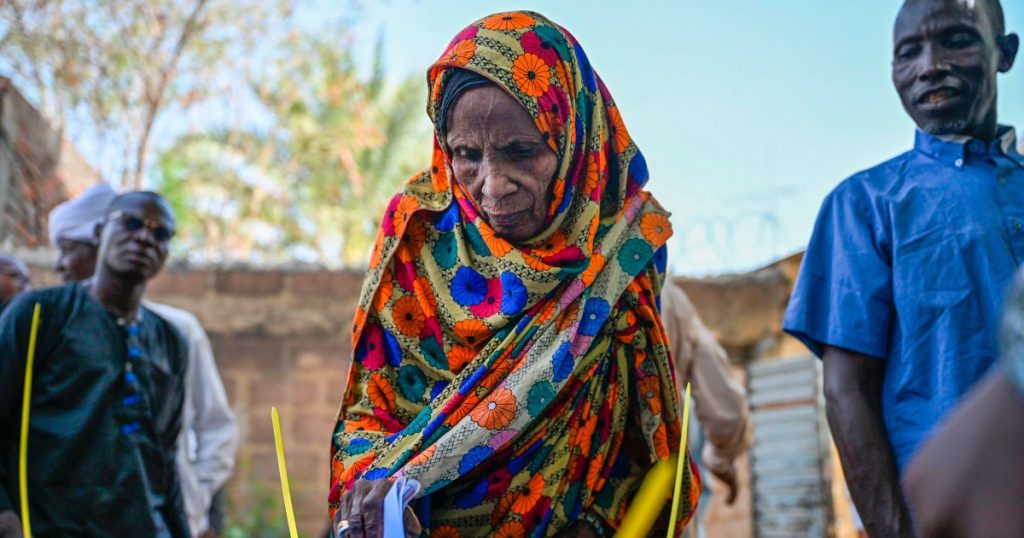Chad, a nation grappling with poverty and political instability, is holding its first parliamentary, regional, and municipal elections in over a decade. This electoral process, initiated by the former military regime now transitioning to civilian rule, aims to steer the Central African country towards a democratic trajectory. However, the elections are fraught with controversy, marred by opposition boycotts and accusations of a political “masquerade” designed to solidify the ruling Deby family’s power.
The current political landscape is a direct consequence of the 2021 death of longtime leader Idriss Deby Itno and the subsequent seizure of power by his son, Mahamat Idriss Deby. The younger Deby solidified his presidency in a contested election held in May 2024, further fueling accusations of dynastic rule. The opposition views the current elections as a mere attempt to legitimize this power grab, citing the government’s suppression of dissent and lack of a level playing field. This has led to widespread boycotts, raising concerns about the credibility and fairness of the electoral process.
Chad’s democratic aspirations are further complicated by a confluence of security challenges. The ongoing conflict in neighboring Sudan is spilling over its eastern border, while the persistent threat of Boko Haram continues to destabilize the Lake Chad region. Adding to these pressures, Chad recently severed its military pact with France, its former colonial ruler and a key ally, potentially impacting security and stability. These security concerns, coupled with political instability, cast a long shadow over the elections and their potential outcomes.
The electoral process itself involves over 8 million registered voters choosing representatives for the 188-seat parliament, as well as regional and local governments. While over 100 political parties are fielding candidates, the dominant Patriotic Salvation Movement (MPS), founded by the late Idriss Deby and now led by Haroun Kabadi, is widely expected to secure a majority. The MPS has controlled parliament since 1996 and enjoys significant influence, further raising doubts about the fairness of the elections. Key opposition parties, including the Transformers Party led by Succes Masra, are boycotting the elections, citing the government’s repressive tactics and the predetermined outcome of the vote.
The long delay in holding parliamentary elections, originally due in 2015, stems from a combination of factors. The previous government, under Idriss Deby, repeatedly postponed the elections, citing a lack of funds despite Chad’s oil revenues. The country’s economic woes, reflected in its low ranking on the UN Human Development Index, and the disruptive impact of the COVID-19 pandemic further contributed to the delays. Following the 2021 power transfer, the transitional military council, led by Mahamat Deby, further extended the transition period, triggering protests and exacerbating tensions with the opposition.
Adding another layer of complexity to the electoral landscape is the suppression of independent media. A recent ban on online newspapers broadcasting audiovisual content related to the elections, ostensibly due to copyright concerns, has sparked protests from journalists and criticism from rights groups. Although the Supreme Court overturned the ban, the media regulatory authority has yet to implement the ruling, leading to accusations of government censorship and attempts to control the narrative surrounding the elections. This suppression of media freedom further casts doubt on the transparency and democratic nature of the electoral process. The combination of political repression, security challenges, and media restrictions creates a precarious environment for Chad’s nascent democracy.
The prevailing sentiment among analysts and international observers is that the MPS is likely to maintain its grip on power, reinforcing the Deby family’s dominance. This outcome, combined with the opposition boycott and media restrictions, casts a long shadow over Chad’s democratic future. The international community and human rights organizations are calling for greater inclusivity and fairness in the electoral process, emphasizing the need for a level playing field for all political actors. The opposition, while boycotting the elections, has pledged to monitor the process and report any irregularities to international bodies. The future of Chad’s democratic transition remains uncertain, hanging in the balance between the ruling party’s consolidation of power and the opposition’s struggle for a more inclusive and representative political system.

